Digital Health
Gippsland PHN supports cohesive digital health planning that facilitates shared clinical information and sector integration.
We recognise that digital health provides several of opportunities beyond the immediate needs such as secure messaging, e-referrals and My Health Record. Therefore, we commissioned a digital health strategy to better understand what we can do to support this over the next year.
Stakeholder feedback through our needs assessment and Tell Maria program includes:
- e-referrals can improve communication between providers
- communications and integration between hospitals and primary care can be challenging
- people raised concerns about having to repeat their history every time they saw a new health professional even within the same organisation or practice
- “you have to keep explaining yourself in the end I think why am I here — I’m just wasting my time — it should all be on the computer, shouldn’t it?”
- a common issue across health issues was lack of effective communication.
People also told us there is awareness, optimism and enthusiasm for e-health initiatives.
There is a strong appetite in the region for a more strategic approach to developing a collaborative and streamlined response that will lay the foundation for improving the regional referral environment across all sectors.
Gippsland PHN is committed to assisting in the understanding and meaningful use of digital health systems in order to streamline flow of relevant patient information, including across the local health provider community.
Digital Health Forum
In June 2018, Gippsland PHN facilitated the Gippsland Digital Health Forum. The forum brought together eminent speakers including Bettina McMahon from the Australian Digital Health Agency, Neville Board, CIO of the Victorian Department of Health and Human Services, Matthew Pinches from Gippsland Health Alliance and Marianne Shearer from Gippsland PHN.
Tim Blake, who has vast experience in leading digital health reform and implementation, led the forum through an informative and idea-provoking day of local digital health engagement guided by national and Victorian strategic leadership.
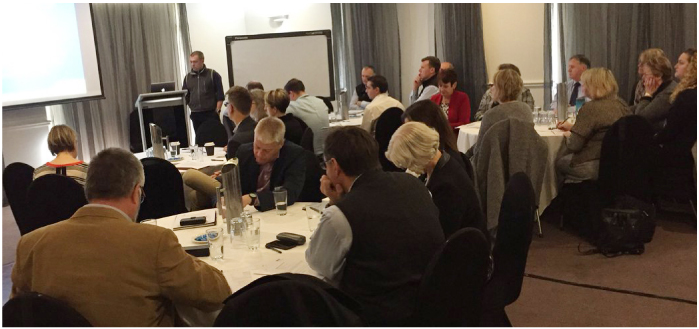
Telehealth Training

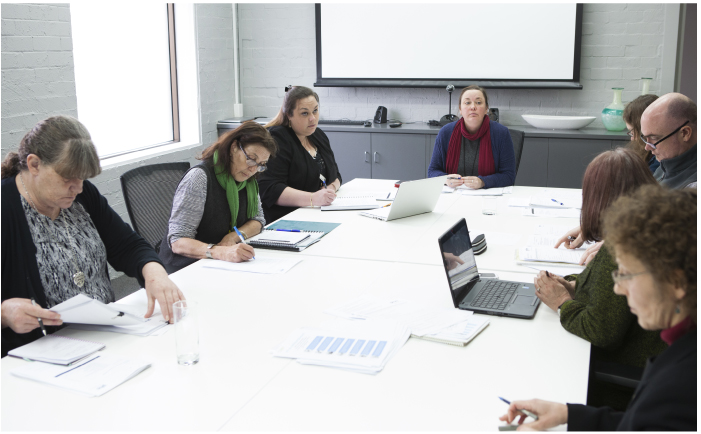
POLAR GP
POLAR GP was launched in 2016 with the support of all three Clinical Councils. Since the launch, POLAR GP has been installed across the entire region of Gippsland and is now being used in 70 per cent of general practices.
POLAR GP provides general practices with insights to enable better clinical, business and accreditation planning. It enables meaningful analysis by general practices of their own identified patient data, which is presented in an easy-to-use graphical format. POLAR GP also enables Gippsland PHN to identify population health needs and provides valuable information for our needs assessment.
In 2017/18, POLAR GP was successfully rolled out to practices across Gippsland that use ZedMed. This roll-out has assisted in the development and testing of the ZedMed compatibility and has aided in the roll-out of POLAR GP in ZedMed practices across the entire country.
Major changes to the POLAR GP reporting platform were developed and rolled out this year in all Gippsland practices. Each practice received an upgrade to the POLAR GP browser-based report. This has increased ease of use and compatibility across clinics, with users now able to access POLAR GP from any computer within their practice.
Gippsland PHN is actively involved in the development and design of the POLAR GP tool, working collaboratively with the developers Outcome Health and partner PHNs. This collaboration is key to ensure that the needs of Gippsland practices are heard when designing new features and reports.
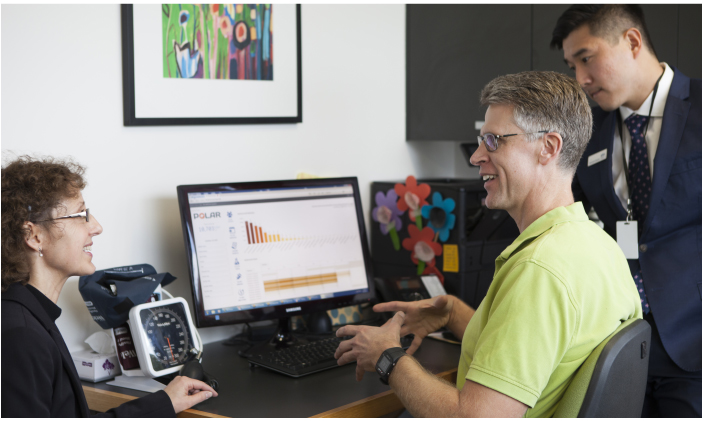
Key achievements
Rolled out the upgrade of POLAR GP, including installation in all sites and the introduction of new and improved POLAR GP browser-based reports.
Installation and training of POLAR GP HARP Risk Assessment Report in South Gippsland practices participating in Ambulance Victoria Nurse Led Care Coordination Project.
A collaborative computer lab supporting 40 general practice supervisors was held at the Eastern Victoria General Practice Training (EVGPT) residential workshop in October 2017 and May 2018 in the Yarra Valley. The May 2018 workshop welcomed a visit from Health Minister Mr Greg Hunt, who participated in a hands-on demonstration.
Conducted six educational computer laboratory sessions throughout Gippsland (including in Bairnsdale, Leongatha and Moe) on data analysis in general practice – POLAR GP.
2017/18 Innovations small grants program
In 2017, Gippsland PHN provided an opportunity for organisations to receive a grant from one of two streams of funding offered under the 2017/18 Small Innovation Grants Program.
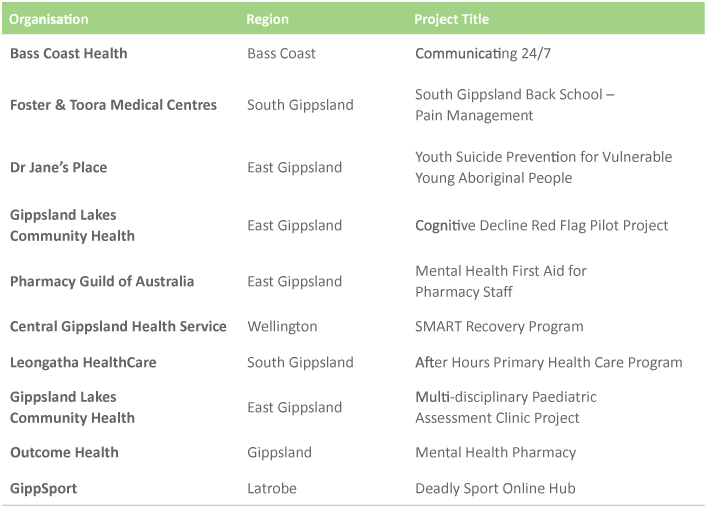
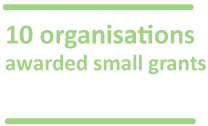
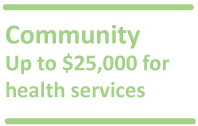
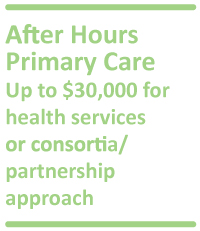
Ideas Bank
Commencing in 2018/19, the Small Innovation Grants Program will be replaced by the Ideas Bank. The Ideas Bank will encourage and support the proactive development and documenting of ideas and proposals that are innovative and responsive to local population health needs, national and state priorities and Gippsland strategic directions.
The Ideas Bank will be used by Gippsland PHN to collaborate with partners and the community to identify funding sources that support the implementation of projects.
South Gippsland Nurse Led Care Coordination
Ambulance Victoria funded Gippsland PHN to investigate the viability of a model of care to reduce non-emergency ambulance call-outs.
The Nurse Led Care Coordination Project in South Gippsland engaged three general practices (Foster Medical Centre, Leongatha HealthCare and Korumburra Medical Centre) to pilot a nurse-led care coordination model of care to identified patients with complex health conditions and transport barriers.
Outcome Health was engaged as a project partner supporting Gippsland PHN and the general practices to analyse patient data through the POLAR GP Diversion Tool. It uses a risk stratification algorithm, in addition to input from GPs and practice nurses, to identify a suitable patient cohort.
The overall project aimed to develop an innovative model of care to support older people with complex health needs to access comprehensive care and coordination close to home.
It commenced in January 2018 with the establishment of the South Gippsland Project Advisory Group and is due to be completed in February 2019.
Gippsland PHN identified an opportunity to extend the project to focus on:
- appropriate use of emergency services to include patients reluctant to call the ambulance when they really should
- identification of the Care Team for each participant and development of a template to communicate essential information between these primary health services including Ambulance Victoria
- communication of the Advanced Care Directives of the participants
- access to My Health Record for Ambulance Victoria
- provision of and education for remote monitoring equipment for complex care patients.
In addition to the objectives outlined in the existing project plan, the phase two objectives are:
- to promote integrated care and a seamless patient journey for complex care patients and increase patient empowerment to manage their conditions appropriately
- to develop a template for AV and relevant primary health services to communicate key health information for these complex care patients.
Ambulance Victoria has agreed to fund the extension of the project, enabling it to continue until; 30 June 2019.